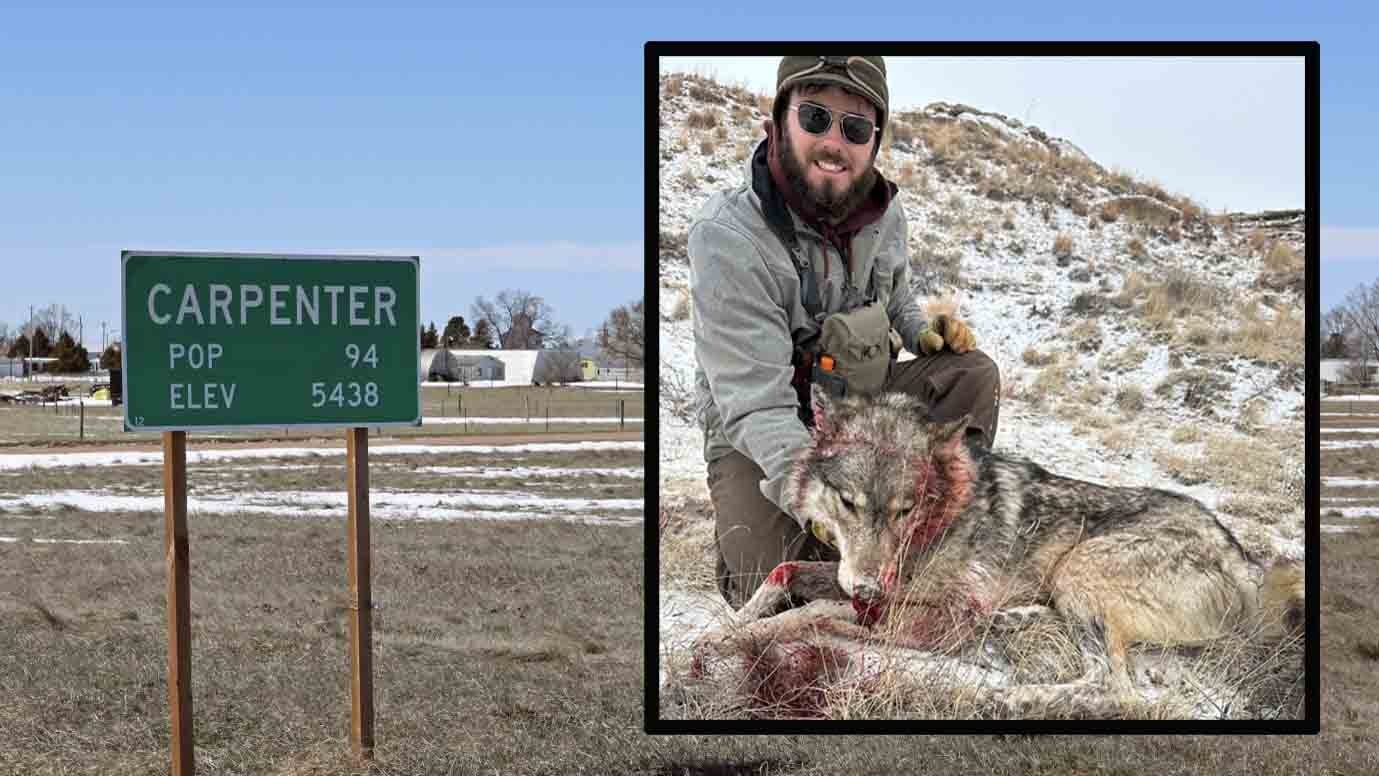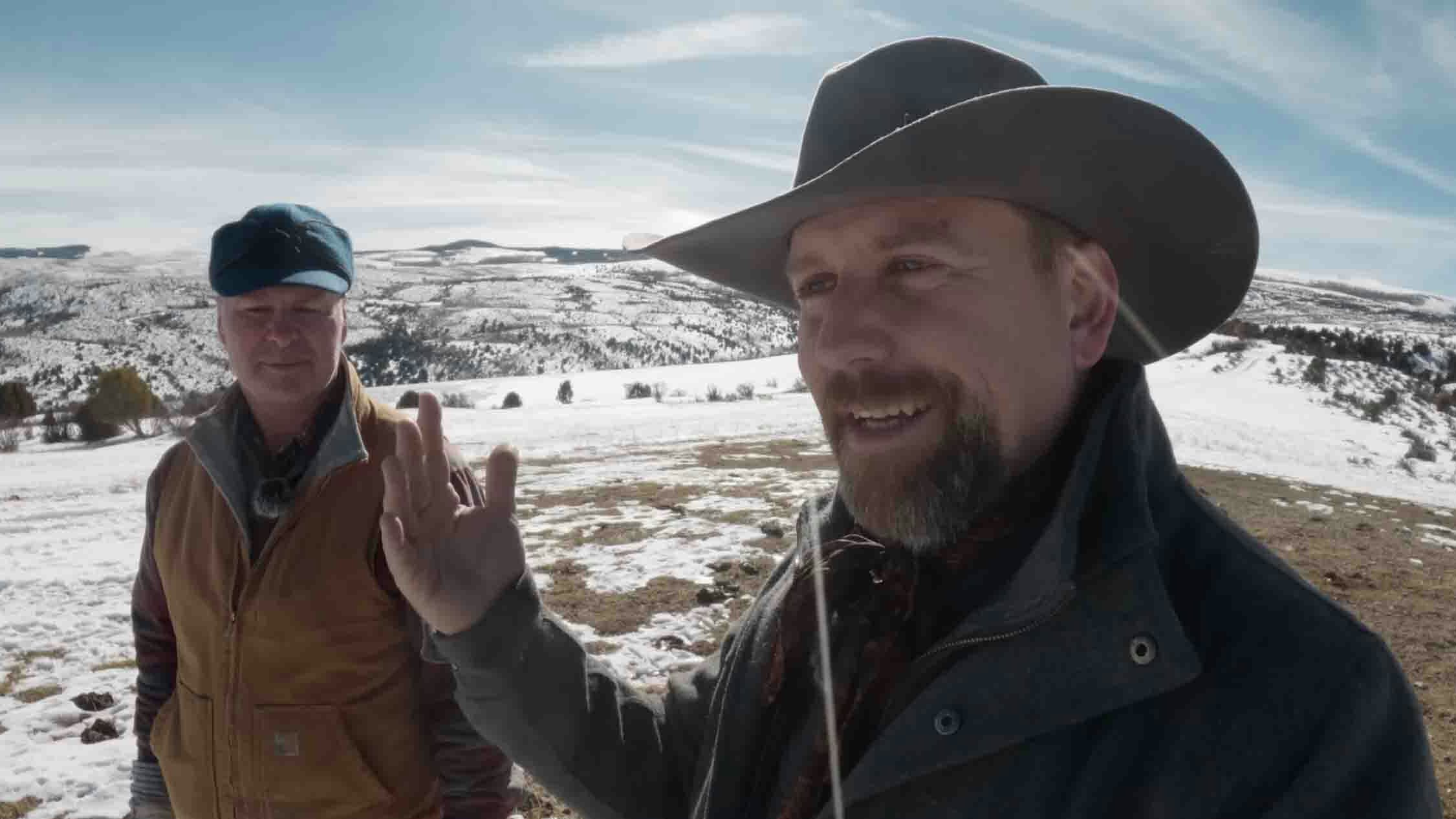The world’s fastest powerboats converge on the Florida Keys to push the boundaries of waterborne speed in an apparent attempt to prove they are not actually boats at all, but rather aspiring aircraft, riding on a plane like hoverboards as they top speeds over 150 mph.
The Key West Offshore Powerboat Racing World Championship races are as speedy as they are dangerous, so don’t be surprised when you see a vessel that looks like the Batboat perform an aerial stunt against its will, jumping out of the water like a twirling dolphin at SeaWorld.
In the aftermath of such crashes, all but guaranteed this past week in the Keys, the man in the highest demand is Wyoming resident Dr. Michael Janssen, medical director for the event.
Janssen is a world-renowned spinal surgeon with a perennially sun-ruddy complexion and bright-white hair that matches his lab coat. But he’s also a decorated powerboat champion, so he knows all too well the risks at play.
“We call it a liquid racetrack, because the surface changes due to the wind, the current, the tide, everything’s changing the surface,” said Janssen, speaking with Cowboy State Daily from Florida after day one of the races.
Watch the event livestreamed, and you’ll see how easily a race can go sideways.
At these speeds, vessels bounce like skipping stones on water, where chop can spike at over 5 feet, wake spray rising behind them like an explosion of surf on a jetty.
They race in startling proximity and rev into lap turns like bees funneling in and out of a hive. On Friday, one powerboat flipped after its bow ramped off the outboard motor of a competitor in this sport’s equivalent of a rear-end fender bender.
“I sent two drivers to the hospital on Day One,” Janssen said.
Adding to the challenge is the fact that every boat relies on two drivers. The navigator has the wheel, and the throttleman controls the RPMs, the angle of the propeller, and the trim tabs that control the degree of plane.
“The most unique thing about boat racing that people don’t understand compared to car racing, is that in every boat, there’s two drivers,” he said.
“Imagine getting in a car and I give you the steering wheel while I have all the controls, and we’re going up the windiest road possible as fast as we can," he said. "You’ve got to be a true team of two people each doing something completely different.”
Dual drivers also mean dual human consequences when accidents happen.
A catamaran from the Montlick Racing team this week found itself stuck between two racers on the side, and another directly in front, leaving it no room to maneuver out. A rooster tail spray filled the Montlick’s pontoon channel and gave the wind enough of an angle to flip the boat front over end like a pancake.
It makes you wonder why anyone would court so much risk. Speaking from personal experience, Janssen has an answer.
“It gives you a great sense of reward to know that you can take something that powerful and control it, no matter what the surface is. To race and win and still be all together when it’s done, it’s an incredible feeling,” he said.
For a man with a medical background, Janssen’s ascendancy in the world of offshore racing seems like an act of spite. But when he made up his mind, no one could talk him out of it — not even the world’s most respected powerboater.
Snowy Mountains Meet Tropical Waters
Janssen always had a passion for power, speed, and machines, cultivated in his youth while working beside his father on car engines when growing up in Iowa.
In later years, he’d find joy in the saddle of a road bike, at the throttle of a snowmachine, and then at the helm of a pleasure boat made by the world-famous North Carolina boat builder Reggie Fountain, known as the “King of Offshore” for both his design innovations and success in racing.
It so happened that Fountain was in the market for one of Janssen’s products — spinal surgery — and the two became fast friends. But Janssen wanted more than friendship.
“As soon as we finished surgery, Reggie turned to me and said, ‘Now is there anything I can do for you?’” recalled Janssen, who was anticipating Fountain’s question. “I said, 'Yeah, I want a race boat, I want you to build it, and I want to win a world championship,'” he said.
“He thought I was crazy," Janssen said. "He looked right at me and said, ‘I have been thrown out of boats. I have broken ribs. I’ve almost drowned. It’s very dangerous. Believe me, you don’t want to do this.’”
But he wouldn’t take no for an answer.
Janssen, Fountain, and Fountain's right-hand man Brian Forehand together partnered on a custom boat, in which they won a first-place title out of the gate at Key West in 2010 in the “extreme class,” where any machine goes and the only standard is to race as fast as possible.
“For me, it’s more exhilarating and exhausting on my muscles than it is from doing a 100-mile bike race,” he said.
After two wins in the extreme class, Janssen decided to move down to the Mod V Class, because even though the machines are not as powerful, the competition is fiercer.
“Due to the expense and the danger — there’s no rules and you’re going super, super fast — fewer people build boats for the extreme class,” he said. “So I went down to the different class where there’s a lot more drivers and competition.”
It was around this time that Janssen bought the Saratoga Hot Springs Resort and adjoining Snowy Mountain Brewery in Carbon County, Wyoming, which became the official sponsor of his Mod V racer.
The Snowy Range of Wyoming would seem like an odd contrast to the tropical waters of Florida, but the chemistry worked. Snowy Mountain Brewery won three first-place titles in the Mod V class in the 2010s.
Janssen is a famously safety-first driver, but his long and unscathed successful run may have created a sense of security against the inherent risks of the sport.
Whatever his thinking about danger before, it changed in 2017 when he lost a close friend to a powerboat crash.
Death At A Poker Run
It wasn’t a championship race, or even a qualifier. It was the Florida Powerboat Club’s Key West Poker Run, where over 200 boaters rally from Miami to the Keys.
Janssen and his friend, Joe Sgro, in separate boats, had zoomed far in front of the group and were pulling in ahead of schedule for a planned stop at Marathon, Florida.
Sgro, an East Coast native, was operating the throttles, but his navigator took an inauspicious angle into the bay.
“They hit a sandbar. The boat went straight into the air and then landed upside down. There were four other passengers on the boat and they all got out immediately, but Joe was stuck in his seat belt, trapped under the boat,” Janssen said.
Luckily, a passing boat of scuba divers saw the incident and quickly dove in to free Sgro.
Unluckily, however, Marathon just months before had been decimated by a hurricane, so when Janssen barged into the local Fishermen’s Hospital with Sgro, they found little of the needed medical resources.
“All that was there was a makeshift little hospital operating out of storage containers. The only thing I could really do was give him CPR and a few other things to stabilize him,” he said, explaining that Sgro was dealing with brain and facial trauma along with airway issues.
In order to secure an airlift to the trauma center in Miami, he needed to perform a series of tests to prove Sgro was stable while administrators stood by on the phone.
“After I ran all the tests over about an hour, I told them his vitals are stable and I think he can survive, but the only way he’s going to make it is to get him to your hospital,” he said.
At last the chopper arrived. But it wasn’t soon enough. Sgro passed away en route to Miami, exactly eight years ago on November 9, 2017.
The King’s Advice Sinks In
Reeling from the loss, Janssen decided to spearhead safety reforms in offshore competition, with the hope they’d be adopted by the wider powerboat community.
Among those improvements were new standards for improved instant-release seatbelts, extended onboard oxygen tank regulators, and increased simulator training for all participating drivers.
That behavior rings consistent with Roger Huckfeldt, former Wyoming legislator and personal friend, who’s witnessed Janssen’s enthusiasm for safety on boats, motorcycles, and while instructing scuba divers.
“Whatever he gets hold of, he does it the right way. He has a passion for teaching people, and specifically for teaching people how to do things safely. I’ve never known Doc Janssen to cut a corner to do anything,” said Huckfeldt, who chuckled as he qualified the statement.
“I take that back. I have seen him on his motorcycle cutting literal corners.”
Some accidents happen in slow motion and away from the course. This week Janssen attended to a team member who was concussed after falling from the dock and hitting his head. In another case, a boat went up in flames while at anchor due to an undetected fuel leak.
Despite Janssen’s push for a culture of improved safety, powerboating continues to claim lives, including that of Stephanie Rodriguez, a 28-year-old from Hialeah, Florida, who died last year after being ejected from a boat during a poker run.
For these and other reasons, the initial advice offered by Reggie Fountain, the King of Offshore, appears to be sinking in.
“I’ve had the experience. I’ve won championships. But now my only goal is to shape the sport to make it safer,” Janssen said. “I don’t have a desire to race next to someone like NASCAR at that speed anymore, because it is a very dangerous sport.”
Zakary Sonntag can be reached at zakary@cowboystatedaily.com.












